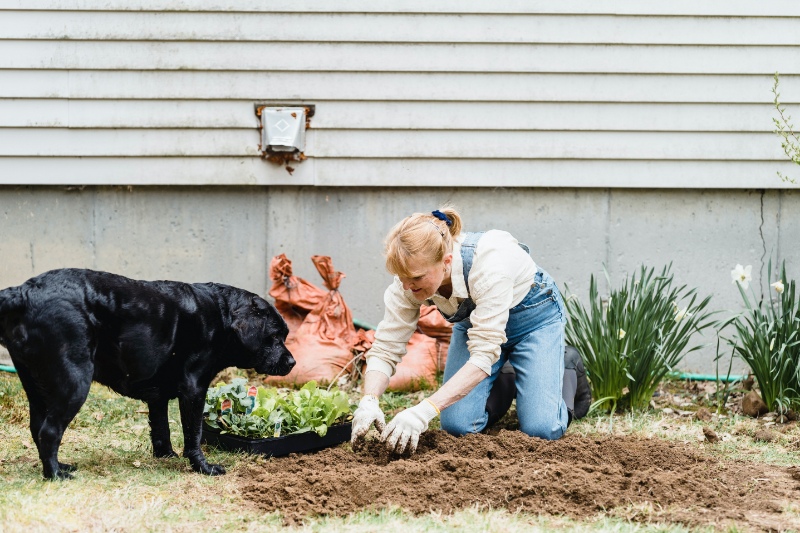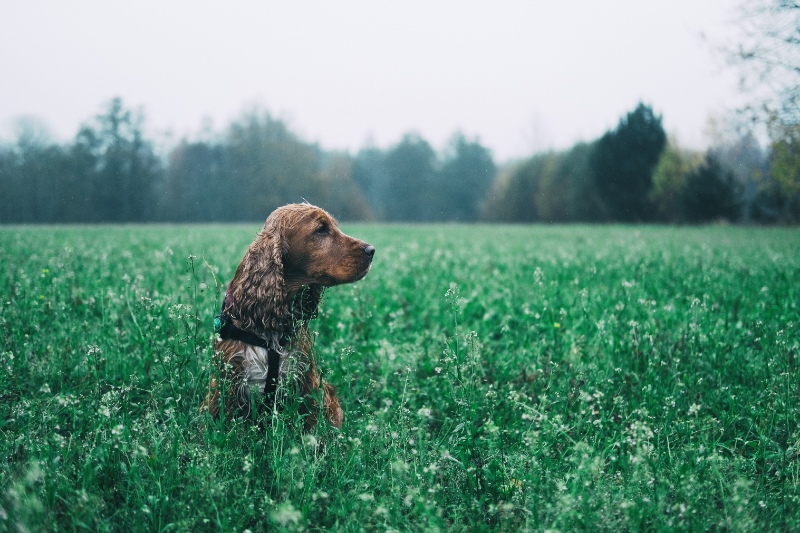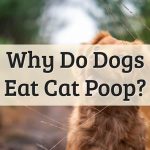If you recently adopted a cute puppy, you are probably well aware of the importance of proper housebreaking, from dealing with accidents in the house to creating a regular schedule for going outside. Children typically need to use the restroom right away after eating and drinking. How long does it take a dog to poop after eating? An average dog’s digestive system typically takes 6 to 8 hours to process food. Please read this article carefully if you want to learn everything about your puppy’s pooping.
How Much Time Does It Take For A Dog To Eat, Digest, And Then Poop?
How long your dog will poop after eating will depend greatly on the kind of food and its ingredients. Due to its high water content, wet food digests much more quickly in your dog’s digestive system than dry food.
Water makes up about 75% of most canned dog food. The manufacturers do not, however, add 75% water to 25% of the ingredients; rather, the components themselves typically contain 75% water.
The most frequent type of meat to be used in dog food is muscle meat, which is also the most nutrient-dense type and contains 75% moisture.
If you want to know how food might affect how long it takes your dog to poop after eating it, look at the nutritional information on the can to see how much moisture it contains.
Their digestive capacity measures dogs’ ability to absorb nutrients from their food. This implies that highly digestible food produces less waste because it requires less food to provide your dog with all of its nutritional needs.
Your dog, in contrast, will require more of the less digestible foods, which will necessitate more frequent bowel movements after meals.
A food with digestibility of less than 75% (i.e., 25% of it turns into poop) is generally regarded as being of low quality, whereas food with an 82% digestibility or higher (18% turns into poop) is regarded as being of high quality.
The ingredients themselves also have an impact on digestibility; it’s not just the quality of the ingredients that matters.
Chicken and fish, which are two of the most widely used protein sources in dog food, both have high levels of digestibility (80.2% and 87.5%, respectively). Lamb, which is less frequent in the food we feed our dog, is down at 71.5%.
Large amounts of grain in dog food will also take longer to digest than foods high in protein. Again, you can determine the nutritional value of the food for your dog by reading the label or information on the bag.
Ingredients are listed in the food in order of their volume. As a result, when you see wholegrain cereals at the top of the list, you’ll be aware that food takes longer to digest than usual and that it will be necessary to poop several hours after eating.
Factors To Consider
Age
We are all aware that puppies require more frequent bathroom breaks than adult dogs. That’s just because their bodies need some time to learn to control their bowel movements. Don’t forget that because puppies eat more frequently, they also need to urinate more frequently.
Additionally, senior dogs might require more frequent bathroom breaks. Their muscles and digestive system are thought to be less effective now than they were when they were younger, which may account for this.
Diarrhea
Your dog might be experiencing constipation if you’ve noticed that they’re pooping less frequently than usual. Dehydration, inadequate dietary fiber, insufficient exercise, and other factors can all contribute to this.
Constipation can also result from a variety of medical conditions. Therefore, a trip to the vet is necessary if your dog hasn’t defecated in a few days.
Your dog probably has diarrhea if they need to go much more frequently than usual, or if there is a change in the consistency, color, or smell of their feces.
Overeating or consuming a dish that doesn’t agree with them can be the cause of this., like getting into the garbage!
If there is no improvement after 48 hours, speak with your veterinarian once more for guidance. In some cases, it may also be the result of an infection or a more serious medical condition.
The Volume Of Food Eaten
Additionally, there will be more waste produced if your dog’s food consumption has suddenly increased. With more table scraps being consumed and perhaps some extra visitors giving the dog more treats than usual during the holidays, this issue can be especially problematic.
Food Ingredients

For instance, fiber is a crucial component of your dog’s diet to ensure healthy bowel movements. This is so because fiber gives food more bulk, and bulk helps the intestines’ muscles move food through the digestive system.
This implies that your dog will require more frequent bowel movements when the fiber content of its food is high. High fiber content is a common feature of dog foods designed to promote weight loss because it bulks up the food without making dogs gain weight.
However, that does imply that you should also anticipate more waste!
Stress
Have you ever found yourself in a situation where you needed to use the restroom right away because you were worried? They are identical to our dogs. Norepinephrine is a hormone that is released when a dog is under stress.
The ‘fight/flight’ chemical increases heart rate, dilates pupils, and hastens the time it takes for the intestines to empty, which is when diarrhea occurs! Certain dogs may experience stress from unusual events like house guests, car rides, and veterinary visits.
Do Dogs Poo After Every Meal?
The majority of puppies do poop right after eating. Puppies consume three to four meals a day, and each meal requires a poop. Digestion in puppies is very effective.
Additionally, because they are young, they have not yet mastered the ability to control their bowels. Your puppy will poop soon after each meal because puppies can’t “hold it” for as long as adult dogs can.
Due to the immaturity of his bowel, your puppy will poop more frequently than an adult would. His colon is actually closer to his stomach in your puppy.
After eating, the nerve endings in his colon are immediately stimulated, causing him to almost immediately need to go to the bathroom.
Any food that is even partially ingested will be expelled from the body by the colon’s reflexes. But as he gets older, your puppy will learn to control his bowel movements better. It takes time and careful, effective housetraining techniques for him to learn to control his bowel movements.
Note: Consult your veterinarian if your puppy hasn’t pooped in the past 24 hours or hasn’t had diarrhea for two days or longer.
How Frequently Should You Take Your Puppy Outside To Poo?
At least four times per day, your puppy needs to be taken outside to relieve himself after eating food of any kind. It’s best to go to the bathroom right after every meal, and most puppies need to go about 10 to 15 minutes after every meal.
Puppies typically need to go to the bathroom a quarter of an hour after eating. Some puppies, though, will need to relieve themselves after just five minutes. It’s possible that other puppies could go an entire hour without going potty.
When and where your puppy poops depend on a variety of factors, such as:
- His diet (especially whether he’s eating mostly dry or wet food)
- His meal sizes (if he eats little and often, he’ll need to poo little and often, as well)
- His stress levels (pooping or peeing in the house can be a sign of stress or anxiety)
- In terms of size, age is more important than breed: the older the puppy, the longer he can hold his bowels)
- How much exercise he gets; regular exercise will help him have more regular bowel movements. Exercise helps move food through the digestive system)
- Which breed he is
- Any pre-existing health conditions or problems
- Any medication he’s taking (some medications can cause your puppy to poop more or less often)
Conclusion
Even though a dog can wait up to seven hours after eating before going potty, that doesn’t mean that they won’t go shortly after their most recent meal because the poop you see will have already been digested. There are many variables that can affect the timing. However, be prepared to let them out after they’ve eaten.
Read more:





